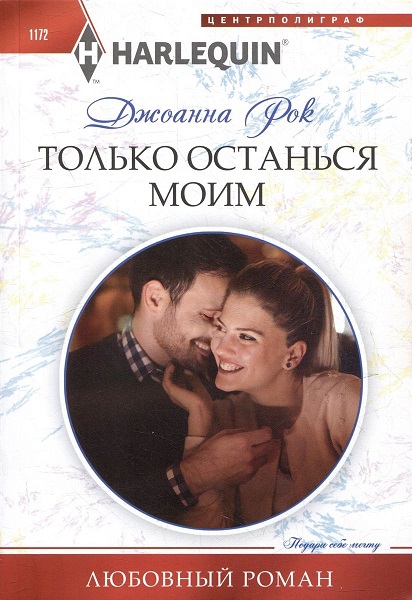Благословение Небожителей. Том 6 (ЛП) - Мосян Тунсю

Помощь проекту
Благословение Небожителей. Том 6 (ЛП) читать книгу онлайн
FENG SHUI: Literally translates to wind-water. Refers to the natural laws believed to govern the flow of qi in the arrangement of the natural environment and man-made structures. Favorable feng shui and good qi flow have various beneficial effects to everyday life and the practice of cultivation, while the opposite is true for unfavorable feng shui and bad qi flow.
THE FIVE ELEMENTS: Also known as the wuxing (五行 / “Five Phases”). Rather than Western concepts of elemental magic, Chinese phases are more commonly used to describe the interactions and relationships between things. The phases can both beget and overcome each other.
◇ Wood (木 / mu)
◇ Fire (火 / huo)
◇ Earth (土 / tu)
◇ Metal (金 / jin)
◇ Water (水 / shui)
Flowers:
LOTUS: Associated with Buddhism. It rises untainted from the muddy waters it grows in, and thus symbolizes ultimate purity of the heart and mind.
PINE (TREE): A symbol of evergreen sentiment / everlasting affection.
PLUM (BLOSSOMING TREE): A symbol of endurance, as it blooms in the depths of winter. The plum blossom is also one of the four flowers of the ideal Confucian gentleman.
WILLOW (TREE): A symbol of lasting affection and friendship. Also is a symbol of farewell and can mean “urging someone to stay.” “Meeting under the willows” can connote a rendezvous.
FUNERALS: Daoist or Buddhist funerals generally last for forty-nine days. It is a common belief that souls of the dead return home on the night of the sixth day after their death. There are different rituals depending on the region regarding what is done when the spirit returns, but generally they are all intended to guide the spirit safely back to the family home without getting lost; these rituals are generally referred to by the umbrella term “Calling the Spirit on the Seventh Day.”
During the funeral ceremony, mourners can present the deceased with offerings of food, incense, and joss paper. If deceased ancestors have no patrilineal descendants to give them offerings, they may starve in the afterlife and become hungry ghosts. Wiping out a whole family is punishment for more than just the living.
After the funeral, the coffin is nailed shut and sealed with paper talismans to protect the body from evil spirits. The deceased is transported in a procession to their final resting place, often accompanied by loud music to scare off evil spirits. Cemeteries are usually on hillsides; the higher a grave is located, the better the feng shui. The traditional mourning color is white.
GHOST: Ghosts (鬼) are the restless spirits of deceased sentient creatures. Ghosts produce yin energy and crave yang energy. They come in a variety of types: they can be malevolent or helpful, can retain their former personalities or be fully mindless, and can actively try to interact with the living world to achieve a goal or be little more than a remnant shadow of their former lives.
Water ghosts are a notable subset of ghosts. They are drowned humans that haunt the place of their death and seek to drag unsuspecting victims underwater to possess their bodies, steal their identities, and take their places in the world of the living. The victim then becomes a water ghost themselves and repeats the process by hunting new victims. This process is known as 替身 / tishen (lit. “substitution”). In Heaven Official’s Blessing, there is a clear story parallel between the behavior of water ghosts and the birth and actions of Ship-Sinking Black Water.
GUQIN: A seven-stringed zither, played by plucking with the fingers. Sometimes called a qin. It is fairly large and is meant to be laid flat on a surface or on one’s lap while playing.
GU SORCERY: The concept of gu (蛊 / “poison”) is common in wuxia and xianxia stories. In more realistic settings, it may refer to crafting poisons that are extracted from venomous insects and creatures. Things like snakes, toads, and bugs are generally associated with the idea of gu, but it can also apply to monsters, demons, and ghosts. The effects of gu poison are bewitchment and manipulation. “Swayed by gu” has become a common phrase meaning “lost your mind/been led astray” in modern Chinese vocabulary.
HAND GESTURES: The baoquan (抱拳 / “hold fist”) is a martial arts salute where one places their closed right fist against their open left palm. The gongshou (拱手 / “arch hand”) is a more generic salute not specific to martial artists, where one drapes their open left palm over their closed right fist. The orientation of both of these salutes is reversed for women. During funerals, the closed hand in both salutes switches, where men will use their left fist and women their right.
HAND SEALS: Refers to various hand and finger gestures used by cultivators to cast spells, or used while meditating. A cultivator may be able to control their sword remotely with a hand seal.
HEAVENLY CAVES AND BLESSED LANDS: Refers to a collection of sacred sites in Daoism. There are said to be ten large caves, thirty-six small caves, and seventy-two blessed lands in existence. They are places with excellent feng shui and are therefore flourishing with life and rich in spiritual energy/qi. These sites are ideal training spots for cultivators who seek to achieve immortality or heavenly ascension.
HEAVENLY REALM: An imperial court of enlightened beings. Some hold administrative roles, while others watch over and protect a specific aspect of the celestial and mortal realm, such as love, marriage, a piece of land, etc. There are also carefree immortals who simply wander the world and help mortals as they go, or become hermits deep in the mountains.
HEAVENLY TRIBULATION: Before a Daoist cultivator can ascend to the heavens, they must go through a trial known as a Heavenly Tribulation. In stories where the heavens are depicted with a more traditional nine-level structure, even gods themselves must endure and overcome tribulations if they want to level up. The nature of these trials vary, but the most common version involves navigating a powerful lightning storm. To fail means losing one’s attained divine stage and cultivation.
HUALIAN: Shortened name for the relationship between Hua Cheng and Xie Lian.
IMMORTALS AND IMMORTALITY: Immortals have transcended mortality through cultivation. They possess long lives, are immune to illness and aging, and have various magical powers. An immortal can progress to godhood if they pass a Heavenly Tribulation. The exact life span of immortals differs from story to story, and in some they only live for three or four hundred years.
IMMORTAL-BINDING ROPES: Ropes, nets, and other restraints enchanted to withstand the power of an immortal or god. They can only be cut by high-powered spiritual items or weapons and usually limit the abilities of those trapped by them.
INCENSE TIME: A common way to tell time in ancient China, referring to how long it takes for a single incense stick to burn. Standardized incense sticks were manufactured and calibrated for specific time measurements: a half hour, an hour, a day, etc. These were available to people of all social classes.
In Heaven Official’s Blessing, the incense sticks being referenced are the small sticks one offers when praying at a shrine, so “one incense time” is roughly thirty minutes.
INEDIA: A common ability that allows an immortal to survive without mortal food or sleep by sustaining themselves on purer forms of energy based on Daoist fasting. Depending on the setting, immortals who have achieved inedia may be unable to tolerate mortal food, or they may be able to choose to eat when desired.
JADE: Jade is a culturally and spiritually important mineral in China. Its durability, beauty, and the ease with which it can be utilized for crafting both decorative and functional pieces alike have made it widely beloved since ancient times. The word might cause Westerners to think of green jade (the mineral jadeite), but Chinese texts are often referring to white jade (the mineral nephrite). This is the color referenced when a person’s skin is described as “the color of jade.” Other colors of jade will usually be specified in the text.























